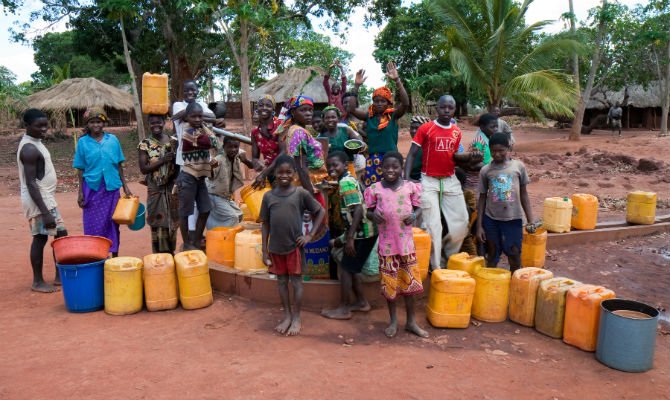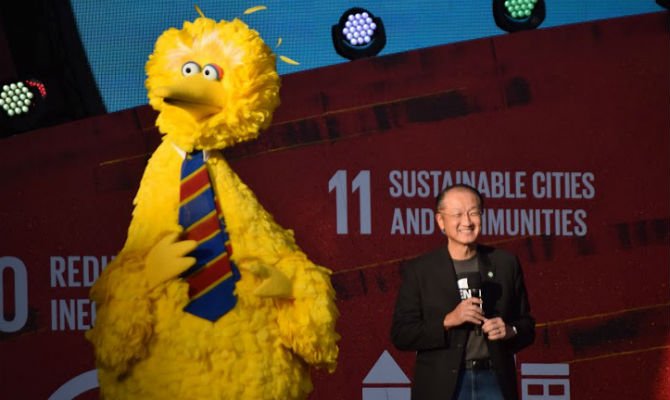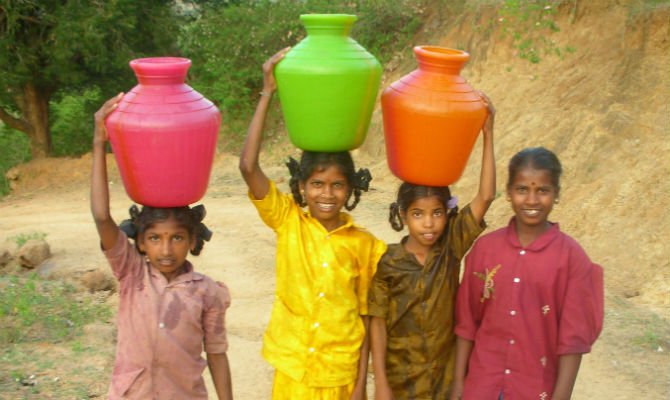WHAT'S THE ISSUE?
2.5 billion people, over a third of the international community, still lack access to adequate sanitation. That is 37% of the global population.
Approximately 80% of diseases in developing countries are caused by unsafe water and inadequate sanitation facilities. A lack of basic sanitation is one of the dominant causes of diarrhea, a preventable illness that kills more than 750,000 children under the age of five each year.
As the Millennium Development Goals and the International Decade for Action ‘Water for Life’ 2005-2015 draw to a close, it is important for this issue to remain at the forefront of the development agenda.

HOW DID GLOBAL CITIZENS RESPOND?
Global citizens have been enormously vocal and successful in calling for action from world leaders on this issue.
Since July, over 40,000 emails have been sent to the Swedish government asking them to put clean water, sanitation, and hygiene in the hands of people all around the world. Two months later thousands of global citizens tweeted the Swedish Minister for International Development Cooperation, Isabella Lövin, thanking her for signing the women for WASH declaration and calling on Sweden to make a commitment at the 2015 Global Citizen Festival.
Sweden listened. While in New York, Prime Minister, Stefan Löfven announced on the Global Citizen Festival stage, a commitment to reach 60 million people with water and sanitation behavior change programs in the coming 15 years.
The power of this collective voice was heard by the World Bank, too. Following almost 20,000 tweets from global citizens, and a personalized letter from Chris Martin of Coldplay, World Bank President, Jim Yong Kim, spoke on stage alongside Sesame Street’s Big Bird, giving an update on the implementation of the commitment made in 2014 of $15 billion towards safe sanitation and water solutions through partnerships with the United Nations, BRAC, WaterAid, Water.org and ONE DROP. He noted that the World Bank has provided $4 billion so far, and is making progress toward reaching 150 million people.

WHAT'S THE IMPACT?
The impact of these calls for action on sanitation has been widespread.
First Daughter of Rwanda, Ange Kagame, reaffirmed her nation’s commitment to slate its hygiene budget to increase to at least 0.5% of GDP by 2020. This goal was pledged earlier this year at the AfricaSan4 Conference, where the Ngor Declaration on Sanitation and Hygiene was born.
Maria Bystedt, Acting Global Manager of the H&M Conscious Foundation, committed to funding a three year project focused on sanitation in the small coastal town of Khurdha, in Eastern India. The implementing partner Practical Action is an international development organisation which uses technology to challenge poverty. The $1.3 million USD is set to affect approximately 45,000 people through improved access to safe water and sanitation.
South African WASH Minister, Nomvula Mokonyane, linked water to life and sanitation to dignity. She endorsed Sustainable Development Goal 6, which focuses on sustainable water and access to sanitation for all.
Sweden, the country whose commitment will have the largest impact, is expected to reach 60 million people with WASH behaviour change programs.
The total number of lives set to be affected through WASH commitments at the 2015 Global Citizen Festival will exceed 60 million.

WHAT HAPPENS NEXT?
Global Poverty Project will support partners, governments and corporate leaders to continue improving access to sanitation. For the upcoming World Toilet Day on November 19, global citizens everywhere will be encouraged to talk about toilets, campaigning their leaders to acknowledge and take action to improve access to sanitation.
Making significant strides in the area of sanitation will directly decrease preventable diseases and deaths, while increasing participation in education and the empowerment of girls.
You can go to TAKE ACTION NOW to call on world leaders to ensure access to clean water and sanitation for everyone in the world.
This piece was contributed by Sophie Goulter, Impact Support Officer at Global Poverty Project.